
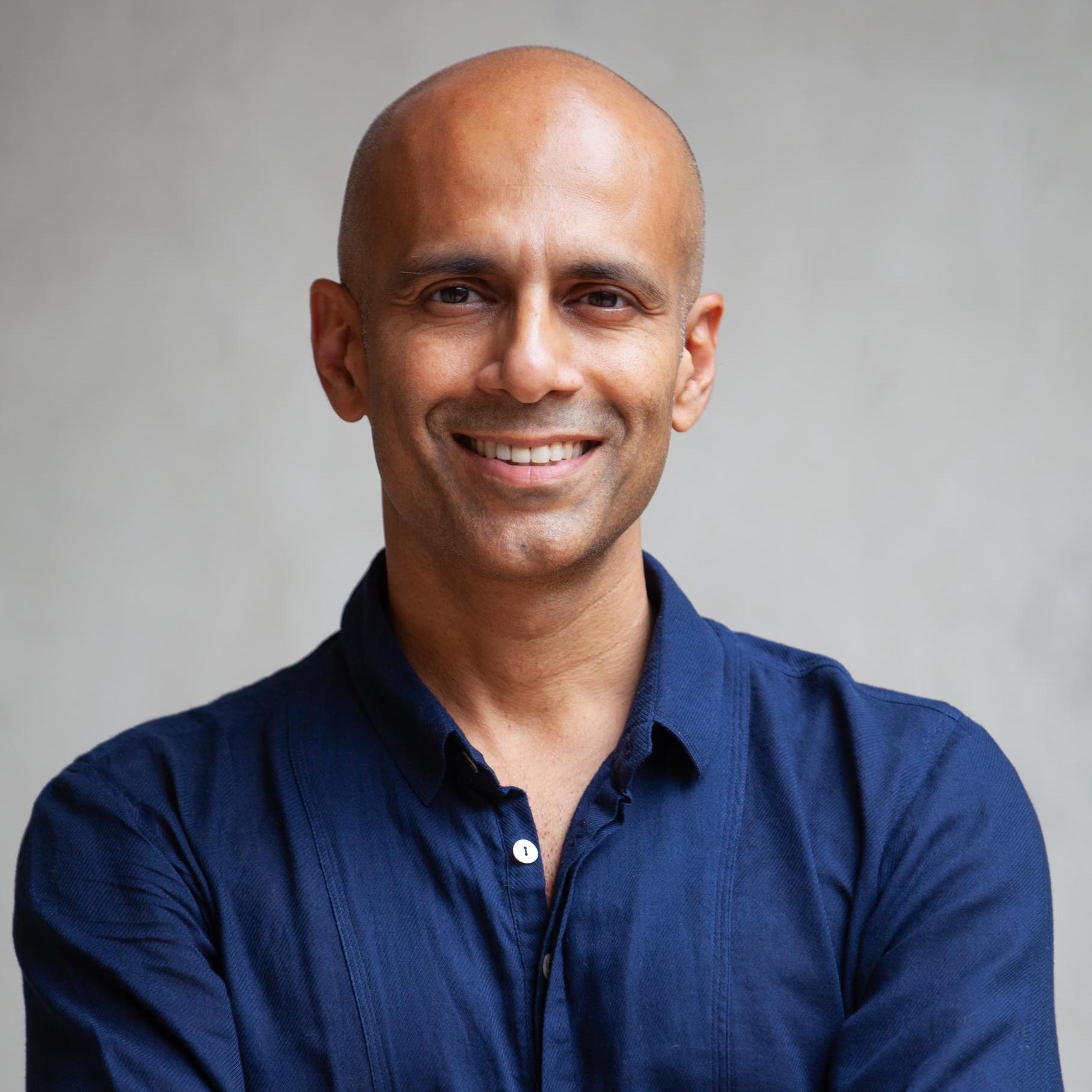
AMBRISH
ARORA

ANKON
MITRA
Ankon Mitra is an architect and artist of international repute. Recipient of the All-India Gold Medal for Sculpture in 2018 from the Prafulla Dahanukar Foundation and the Lexus Design Award for Craft Design in 2020, his work has been exhibited in India, Italy, France, UK, USA, Japan and most recently the Shanghai International Paper Art Biennale in China, in 2019. He is a member of the British Origami Society, Origami USA, the Sculpture Network in Europe and the Paper Artist’s Collective Worldwide. His work is being showcased at the Arte Laguna in Venice later in 2020. A TEDx speaker and a warrior for ‘making connections across disciplines’ with ‘Oritecture’, Mitra shares a unique vision of a universe forming and dissolving from acts of folding.
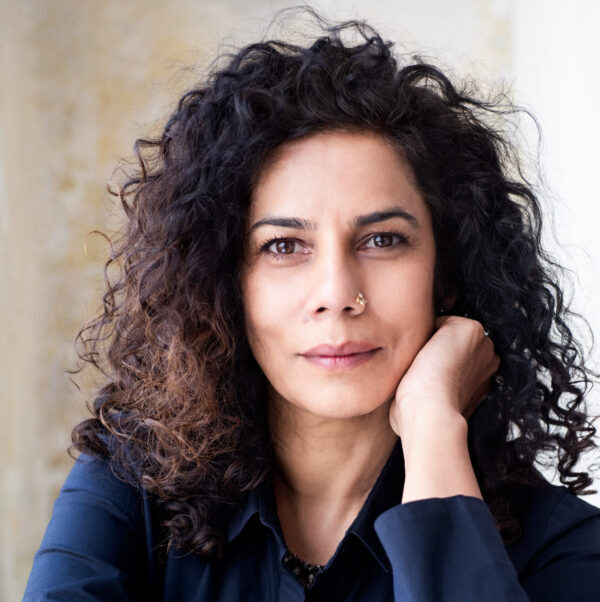
ANUPAMA
KUNDOO
Anupama Kundoo was born in Pune, India in 1967. She graduated from Sir JJ College of Architecture, University of Mumbai in 1989, and received her PhD degree from the TU Berlin in 2008. In 2013 she received an honourable mention in the ArcVision International Prize for Women in Architecture for ‘her dedication when approaching the problem of affordability of construction and sustainability in all aspects’. Kundoo’s internationally recognized and award-winning architecture practice started in 1990 and demonstrates a strong focus on material research and experimentation towards an architecture that has low environmental impact and is appropriate to the socio-economic context. Kundoo has built extensively in India and has had the experience of working, researching and teaching in a variety of cultural contexts across the world: TU Berlin, AA School of Architecture London, Parsons New School of Design New York, University of Queensland Brisbane, IUAV Venice and ETSAB Barcelona. She is currently Professor of Affordable Habitat at UCJC Madrid and the Strauch Visiting Critic at Cornell University.
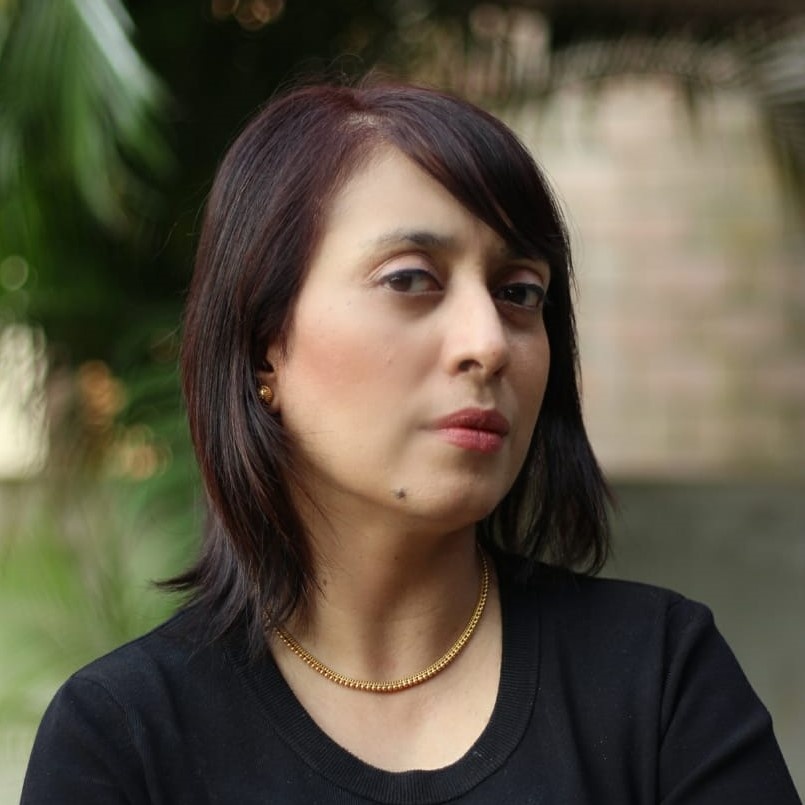
ANURADHA
CHATTERJEE
Professor (PhD) Anuradha Chatterjee is the Dean, Faculty of Design, Manipal University Jaipur. She is the former Dean Academics at Avani Institute of Design, where she was responsible for institution building and establishing culture and systems for academic excellence. Dr Chatterjee is a registered architect in India, and she has over eighteen years of experience as an academic practitioner at premier higher education institutions in Australia, China and India.
She is the Area Editor for Asia, Bloomsbury Global Encyclopedia of Women in Architecture 1960-2015 (edited by Karen Burns and Lori Brown, forthcoming in 2021), and has edited and authored three well received and endorsed academic books, Surface and Deep Histories: Critiques, and Practices in Art, Architecture, and Design, (Cambridge Scholars Publishing); Built, Unbuilt, and Imagined Sydney (Copal Publishing); and John Ruskin and the Fabric of Architecture (Routledge). Dr Chatterjee has convened many conferences and symposia, including the Gender and Academic Leadership in Architecture in India Symposium (21-22 March 2020, Avani Institute of Design) with co-convenors, Professor Madhavi Desai and Dr Kush Patel.
Dr Chatterjee is Companion to The Guild of St George; Member of Editorial Board for Architecture, Cambridge Scholars Publishing; and Senior Research Fellow (Honorary), Centre for Architecture Theory Criticism History at the University of Queensland. Her research interests are a) public spaces and feminist utopias; b) terrain vague and alternative urbanities; c) gender and leadership in architecture; d) design as research, studio education, and student learning cultures; e) architectural theories in history and feminist discourses; and f) textile tectonic theories of architecture. For more information, see: https://anuradhachatterjee.wixsite.com/architectu

BIJOY
RAMACHANDRAN

GAUTAM
BHATIA
Gautam Bhatia graduated in Fine Arts and went on to get a Masters degree in Architecture. A Delhi-based sculptor and architect, he has received several awards for his drawings and buildings and has also written extensively on architecture. Besides a biography on Laurie Baker, he is the author of Punjabi Baroque, Silent Spaces and Malaria Dreams – a trilogy that focuses on the cultural and social aspects of architecture. Bhatia has participated in a number of one-man and group shows in India and abroad. His most recent show of sculpture was held at the Habitat Visual Arts Gallery in August 2018. He is currently working on Future Building – an exhibition of ideas for the future city.
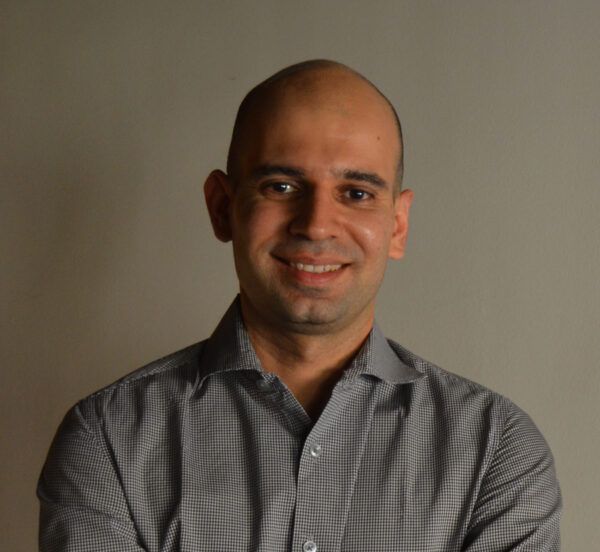
KHUSHRU
IRANI
Khushru Irani is an architect whose practice searches for an appropriate response to the places it works in, inspired by specific context, culture and building technology. The work of the studio includes buildings for education, campus plans for institutes, adaptive reuse projects and buildings for the social sector.
Khushru is also the founder of The Loft Forum, a non-profit organisation that provides a multi-disciplinary platform for meaningful and inspiring work with an aim to foster thought, creativity and dialogue.

MADHUSUDHAN
CHALASANI
Madhusudhan Chalasani is the principal and founder of Studio MADe, an architectural practice based in Hyderabad, India and Pamplona, Spain. He has collaborated with a variety of practices in India and worked for two years in renowned international practices in Europe before establishing his practice in 2007.
The practice primarily focuses on international competitions and self-originated projects that engage in the public realm. The practice’s work has received several international awards. The awards include the Holcim Award for Sustainable Construction (Switzerland), the European Centre for Architecture and the Chicago Athenaeum International Architecture Awards 2014 for a school in Jharkhand, and a competition-winning design for the Central Mosque at Pristina, Kosovo. The studio also won an international competition to create an art museum in Suncheon City, South Korea.
.
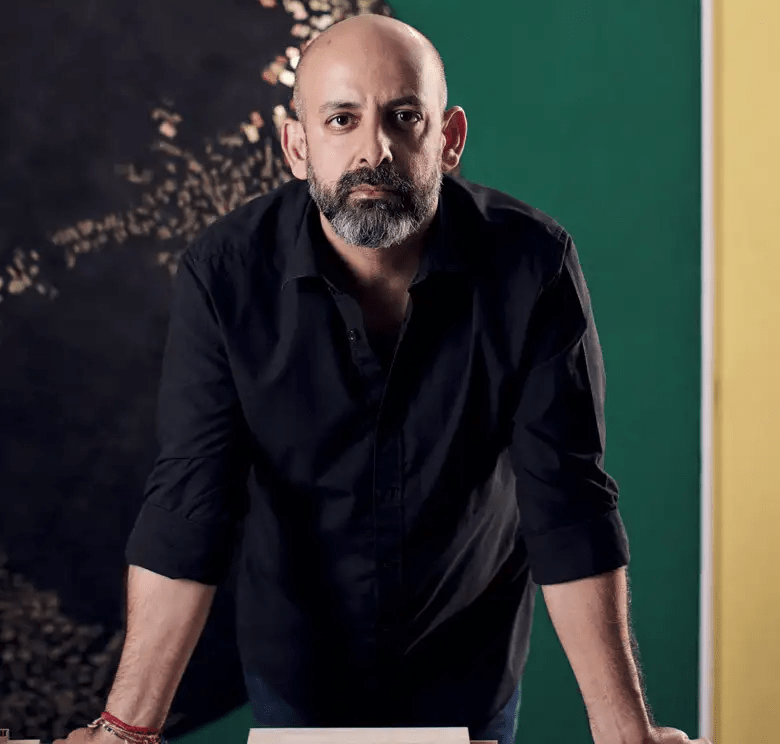
MARTAND
KHOSLA
Martand Khosla lives and works in New Delhi, India. His art practice explores urban continuity and transformation, as both complement and counter to his experience building in contemporary India. Having founded and run an award-winning architecture studio for over fifteen years (Romi Khosla Design Studios). Martand initially pursued art to explore how construction-fueled employment shapes identities and nostalgia. Situated as both participant and observer, he employed tools of the State, such as the ubiquitous rubber stamp, to render its imprint on lives within traditional definitions of power and dispossession. Brick dust collected from his construction sites became a language of tension, allowing material to pay tribute to both the temporary and permanent, to construction and demolition.
An architect’s natural preoccupation with space inevitably emerges in his work, not as a challenge to ‘build’ – but rather to foreground an object’s intrinsic potentiality. His works traverse the lines between sculpture and object, movement and remnant, material and memory. Inspired by his studies of repetition and the human churning of industrialization, he replicates the micro-processes of macro-construction. And simultaneously, he moves from the lens of authoritarian power to its dispersion, exploring the transformations that lay in between.

MRINALINI
GHADIOK
Mrinalini Ghadiok is an architect by training, visualizer by heart and writer by passion. Having worked in architecture, lighting design, historical research and writing for more than a decade, she shifted focus to the narrative of design experiences and stepped into the publishing world with STIR as the founding editor of mondo*arc india journal. With 20 issues under her belt, she then helmed its transition from a print magazine to a successful digital portal, establishing StirWorld.com.
In addition to extensive writing and editorial responsibilities, Mrinalini has also been deeply involved in curating and executing various design-centric initiatives such as conferences, panel discussions, presentations, exhibitions and other explorative media. Her parallel pedagogical experience ranges from teaching architectural design studio to conducting independent workshops and lectures, and being invited as an external examiner across various design and architecture universities.
Her expertise has been sought across national and international forums for presentations, talks and jury empanelling for awards and competitions, as well as for collaborations with international media and curatorial organisations.
Mrinalini is currently an independent consultant and extends her passion for architecture, design, craft and art through research, curation and critical writing. She recently co-founded and co-curates Unplugged Talks, an open platform that provides an opportunity for public engagement with creative minds from across international cultural landscapes through insightful and candid conversations and interviews about personal journeys, explorations, experiences and anecdotes. She has also collaborated with the India Design Forum to curate IDF Debate: Building Blocks, which is a series of discussions with practicing architects that questions the mechanisms that make architecture relevant today.

NATASHA
IYPe

NEERAJ
MANCHANDA
Neeraj Manchanda is Managing Partner at NMA, a highly regarded and award-winning architectural design practice based in New Delhi. His work focuses on progressive, sustainable planning and design for education, hospitality, healthcare and residential developments which to date are spread across fourteen Indian states. NMA has worked collaboratively with India’s leading organizations and institutions in innovating to create exciting new environments.
Neeraj is recognized as one of India’s leading Architects, and has lectured and presented at various national and international forums in the US, UK, Canada and Germany. He has taught at the TVB School of Habitat Studies and the School of Planning and Architecture, New Delhi. He has contributed centrally to pioneering social development projects pertaining to health and education in India, and was responsible for creating India’s first office-building built in raw-earth blocks and other sustainable technologies and techniques.
Neeraj’s and NMA’s work has earned recognition from institutions such as the French Institute of Architects, through awards such as ‘Architectural Practice of the Year Award – Design for Education’ in 2012 and the national award at IIID in 2011, through competition-winning projects and, most importantly, through a positive acceptance of environments created by their users and inhabitants.
Before setting up NMA in 1990, Neeraj was the Lead Architect at the ‘Shelter Group’ of the ‘Society for Development Alternatives’.
Neeraj earned his professional degree from the School of Planning and Architecture, New Delhi in 1985.

RUPALI
GUPTE
Rupali Gupte is an architect and urbanist based in Mumbai, Professor at the School of Environment and Architecture (SEA) and a partner at BARDStudio. Her work often crosses disciplinary boundaries and takes different forms – writings, drawings, mixed-media works, story telling, teaching, curation, walks and spatial interventions.
Her works include extensive research on contemporary Indian urbanism with a focus on architecture and built environment; tactical practices; housing; and urban form. In 2013, she co-founded the School of Environment and Architecture (sea.edu.in). SEA is envisaged as an experimental academic space for research and education in architecture and urbanism. She has a wide range of publications, has delivered lectures and been on juries across the world. Her works in collaboration with her partner Prasad Shetty, have been shown in several exhibitions including the 56th Venice Biennale, X Sao Paolo Architecture Biennale, Seoul Biennale of Art and Architecture, at Manifesta 7 in Bolzano, at the Museum of Contemporary Art in Barcelona and at galleries such as Project 88, Devi Art Foundation and the Mumbai Art Room. She has recently curated an exhibition involving artists and architects titled ‘When is Space? Conversations in Contemporary Architecture’ at the Jawahar Kala Kendra.

RUTURAJ
PARIKH
Ruturaj Parikh is Architect & Partner at Matter. an architecture, design and content firm he established with Maanasi Hattangadi. He is the former Director of the Charles Correa Foundation. He has worked with I.N.T.A.C.H and was an editor at IA&B Magazine in Mumbai. He has been involved in architecture, urban design, planning, curatorial and social projects. He regularly writes about contemporary works and ideas on architecture relevant to India and its subcontinent. He initiated and curated the Z-Axis Conference, The Merit List, Practices of Consequence and multiple architectural initiatives in the public domain. Ruturaj designs and writes from Goa.

SAMEEP
PADORA
Sameep Padora is the principal architect and founder of the Mumbai based studio Sameep Padora & Associates (sP+a).
Sameep completed his undergraduate studies in Mumbai in 1996 followed by a Master’s Degree from the Graduate School of Design at Harvard University in 2005.
He is involved in academia in advisory roles of schools such as Academy of Architecture, School of Environment of Architecture & CEPT and has also held the Charles Correa Design Chair at the Goa College of Architecture.
His practice has received many awards including Beazley Architecture Prize, Archdaily’s Building of The Year 2019 as well as Wallpaper Magazine’s award for single-family house of the year and the Architectural Review’s Emerging Architecture Commendation.
The studio’s projects were also a part of a traveling exhibition entitled Projective Histories as well as have been exhibited at the Seoul Biennale 2019 where he was also curator of the India Section.
In 2016 he founded sPare, a research arm of the studio. sPare’s maiden project, a documentation and analysis of historic housing types within the city of Mumbai resulted in a traveling international exhibition and book entitled ‘In the Name of Housing’ which is being published by the NAi internationally in mid 2020.
He is also a co- founder of the not-for-profit, Bandra Collective, an organization of architects engaging with design of public spaces in the city of Mumbai.

SAMIRA
RATHOD
SRDA has built an enviable portfolio of more than 25 architectural and over 50 interior projects that remind us of the meaning of beauty, sensuousness and materiality. The firms outreach work is equally vigorous and she is the founder and editor of Spade, a platform and design magazine that reinforces the need for esoteric investigations and thinking. Through this she commissions research regularly and looks at diverse areas of design discourse such as architecture in Kerala, dismantling and reproposing of buildings and a close look at the trees in Rani Baug in Mumbai in the book Museum of Trees.

SHIMUL
JAVERI KADRI
Shimul Javeri Kadri founded and nurtured SJK Architects towards its current avatar as a firm that values culture and climate and builds gently in the context. The firm has won several awards nationally and internationally including the World Architecture Festival Award for the Nirvana Films Building in Bangalore and the Prix Versailles Award for the Dasavatara Hotel in Tirupati.
She pursues several causes – building naturally and lightly, and supporting equality through education and feminism. She is a Trustee for Save the Children India and for Akshara, where she has been actively steering education and woman oriented projects. She is also on the Advisory Committee on Gender for the MCGM.
The added responsibilities as an occasional writer, jurist, speaker and teacher are the outcome of her overwhelming desire to present, engage and discuss her passions and concerns of 30 years of practice!

SUHASINI
AYER
Suhasini Ayer – Guigan, is a graduate of “Delhi School of Planning and Architecture”; co-founder of the “Auroville Centre for Scientific Research (CSR)”; an organisation dedicated to applied research in the field of solar passive architecture, sustainable urban development and building technologies, water and waste management and renewable energy.
She heads the “Auroville Design Consultants”, a planning and architectural design unit under CSR. In the projects undertaken by the team, the designs respond to the natural and human geography, local climate and culture to evolve minimal and elegant built forms. The underlying theme in all the projects is the integration of functions with the building systems, including water, energy, waste, building materials and technology to create passive sustainable network between the users to the built and un-built spaces, to empower them to take responsibility for their environment.Suhasini has won many prestigious national and international awards, which include nomination for Aga Khan Award, Hassan Fathy Architecture for the poor Award, and Design Share Award USA for Educational Buildings.

MAANASI
HATTANGADI
Maanasi Hattangadi is a partner at Studio Matter, a practice based out of Goa. The studio currently is involved with several architecture projects and content initiatives such as ThinkMatter, an online portal, [IN]SIDE journal, The Merit List, Frame Conclave amongst others. Before embarking on her independent practice in 2014, she co-edited the Indian Architect & Builder magazine & co-curated 361° Conference for five years. She completed her undergraduate studies from The Maharaja Sayajirao University of Baroda and pursued her post graduate degree at the Master of Architecture programme at CEPT with a major in History, Theory, Criticism. She has also taught as a Visiting Faculty at NITTE School of Architecture. Over the years, her varied interests have engaged her in simple documentation projects and several cross-disciplinary publications & programmes as an independent writer and in other capacities.

RAJESH
ADVANI
Rajesh Advani is an architect and urban designer, based out of Delhi. He founded ArchitectureLive! in 2011 with an objective of making architectural and design information easily accessible to everyone, and to provide equal and fair opportunity to all to discuss, share and publish their works online. Since 2011, ArchitectureLive! has evolved into a digital platform that enables meaningful discourse around architecture and design by regularly broaching upon issues like relevance of the design profession, architecture education, ethical practices and many more.
He published india: unbuilt architecture, the first book that seeks to celebrate the value of Indian architecture. The book received high appraisal from its readers across the globe.
In addition to being busy with ArchitectureLive! and Unbuilt, Rajesh also takes up graphic and web design projects.
Rupali Gupte is an architect and urbanist based in Mumbai, Professor at the School of Environment and Architecture (SEA) and a partner at BARDStudio. Her work often crosses disciplinary boundaries and takes different forms – writings, drawings, mixed-media works, story telling, teaching, curation, walks and spatial interventions.
Her works include extensive research on contemporary Indian urbanism with a focus on architecture and built environment; tactical practices; housing; and urban form. In 2013, she co-founded the School of Environment and Architecture (sea.edu.in). SEA is envisaged as an experimental academic space for research and education in architecture and urbanism. She has a wide range of publications, has delivered lectures and been on juries across the world. Her works in collaboration with her partner Prasad Shetty, have been shown in several exhibitions including the 56th Venice Biennale, X Sao Paolo Architecture Biennale, Seoul Biennale of Art and Architecture, at Manifesta 7 in Bolzano, at the Museum of Contemporary Art in Barcelona and at galleries such as Project 88, Devi Art Foundation and the Mumbai Art Room. She has recently curated an exhibition involving artists and architects titled ‘When is Space? Conversations in Contemporary Architecture’ at the Jawahar Kala Kendra.
